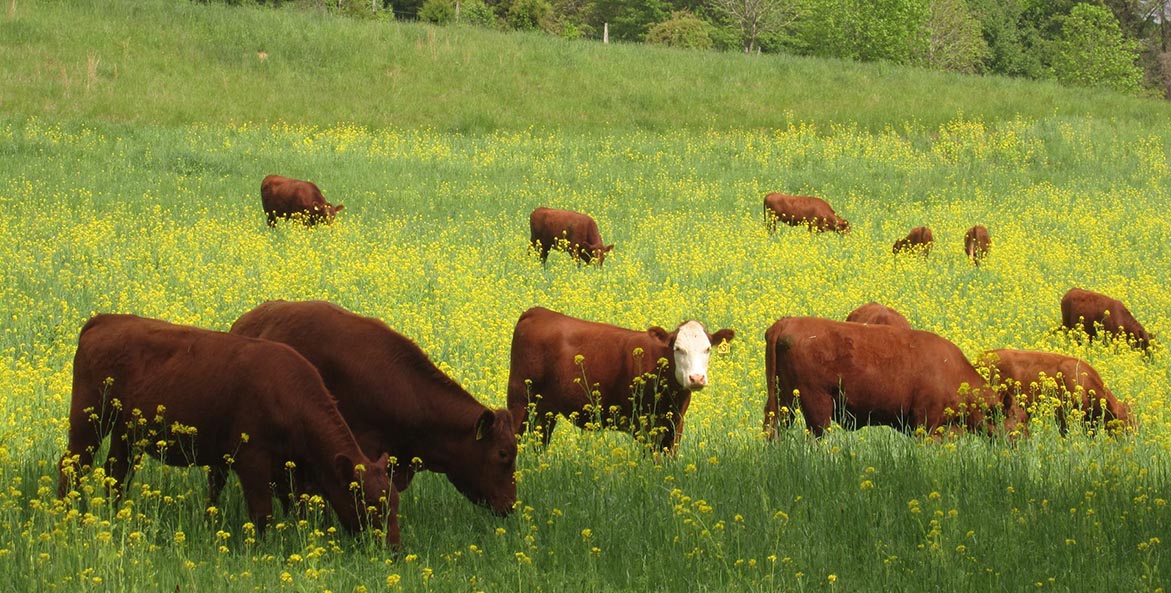This week, we turn our focus on agriculture—one of the biggest land uses in the watershed and a key component of clean water. Learn about an exciting study to help farmers in Pennsylvania find the best way to integrate trees into livestock pastures. Hear from one of the last Black-owned farms in Clarke County, Virginia about how they’re using rotational grazing to improve the land and water. Find out about regenerative agriculture and how it’s helping farmers go above and beyond sustainability. Catch up on the latest about pollution from the poultry industry and ways to reduce it. Finally, check out what student leaders see as the Bay’s Watershed Bill of Rights (and how they plan to make it a reality).
Farming with Trees
Silvopasture—the intentional integration of trees and grazing livestock on the same land—has been around a long time, and it has many benefits for herd health, soil health, and water quality. But it isn’t easy. A new study led by CBF on five Pennsylvania farms is exploring how to implement silvopasture cost-effectively and successfully.
Video: Morgan’s Last Standing
Morgan’s Last Standing farm is among the last Black-owned farms in Clarke County, Virginia. The Morgan family worked with CBF to install a rotational grazing system, leading to a more productive farm, healthier soil, and cleaner waterways. It's part of the family's calling to take care of the land across generations.
Video: Regenerative Agriculture
We've heard about growing sustainable food, but what if farmers could go beyond preserving the environment and actually improve it? CBF's Director of Science and Agricultural Policy Beth McGee explores the carbon-capturing, pollution-reducing promise of regenerative agriculture—from her own backyard—and shares how you can help.
Video: Chicken Litter
This month's virtual Brock Environmental Center Learning Series webinar explores the very important, but relatively unknown, pollution issues resulting from the watershed-wide poultry industry. Take a look at the science behind ammonia pollution, the permitting policies governing the poultry industry in Virginia, and how the Bay is affected.
Watershed Bill of Rights
Playing in clean water, celebrating outdoor heritage, and relaxing in peaceful places—these are just a few of the rights CBF Student Leaders believe everyone in the watershed should have. Read the rest of their Chesapeake Bay Watershed Outdoor Bill of Rights and learn what they’re planning to do next!
What You Can Do
- Don’t forget the meat tenderizer! Sea nettles (jellyfish) are all over the Bay this year. Learn why they’re here, what they mean for the Bay’s ecosystem, and how to stop the sting.
- Did you know August is National Make-a-Will Month? Get a jump start on celebrating by using our free tool today to create your will and protect the ones you love.
- Sign up for our weekly Save the Bay e-newsletter—a weekly roundup of uplifting Bay stories, inspirational videos, helpful teaching resources, and much more.
- Become a Chesapeake Guardian: Now through July 30, when you make a monthly gift of $15 or more, we will send you our limited-edition Bluetooth speaker!



